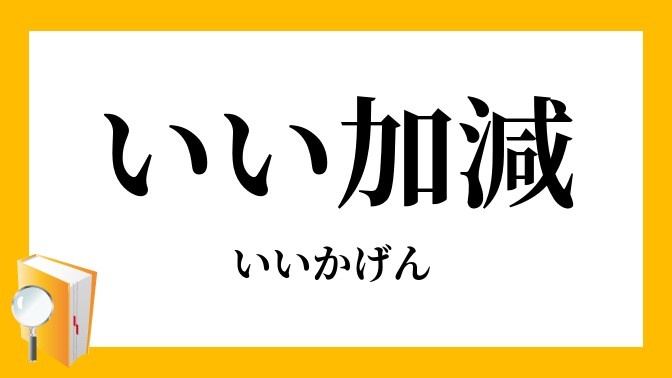ある時、企画の準備をしていた私は、思わず「こんないいかげんなことで大丈夫だろうか」と口にしてしまった。
When I was preparing for a project once, I accidentally said, Is it really okay to cut corners this much?
。
At that moment, my friend next to me smiled and said, Its not careless—its just right.
。
そのひ言に、胸のつかえがすっとほどけたのを今でも覚えている。
I still remember the light feeling in my heart when I heard those words.
。
When I looked it up in the dictionary Kojien, I found that ii kagen has three meanings.
。
First, moderate, just the right amount; second, not thorough, irresponsible, not deeply considered; and third, so-so, relatively.
。
In other words, the word ii kagen is ambiguous and can have either a positive or negative meaning depending on the context.
。
We tend to use it in a negative sense the second meaning, but originally it has a positive nuance such as moderate or having self-restraint.
。
Many aspects of society are built not on carelessness, but on our efforts guided by the principles of accuracy and thoroughness.
。
Its not exactly wrong, but if that mindset seeps into every corner of our lives, were sure to feel suffocated.
。
Of course, its important to grasp the important things, but in everyday life, its probably better to allow for some degree of deviation or exceptions.
。
You dont have to make everything perfect; true peace comes from leaving some room to handle things moderately.
。
「いいかげん」なのではなく、「好い加減」なのだと、時には自分をやさしく許すことも必要ではないかと思う。
過剰な完璧主義を手放し、適度な曖昧さを受け入れることによって、生きるという営みそのものが、もうすこしやわらかく見えてくるに違いない。

